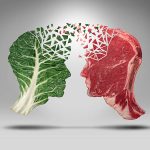
Welcome to your unofficial primer on weight gain, folks! This isn’t some overnight internet sensation’s list of trendy tips. Instead, we’re talking about good old-fashioned wisdom – the kind mothers have been passing down through generations. And if your mom didn’t manage to share these pearls with you (or if you forgot), don’t fret!
The Five Essential Lessons About Weight Gain Your Mom Should Have Taught You
These simple, yet profound insights are designed to help you understand and manage your weight effectively. Some may seem like common sense, but you’d be surprised how often they’re overlooked. So, let’s get to it, shall we?
Lesson #1: Weight gain occurs when you consume more calories than you burn.
Weight gain, a common issue many people grapple with, primarily occurs when you consume more calories than your body can burn. But let’s dive a little deeper into this critical subject that your dear mom should have schooled you about.

The Basics of Weight Gain
At its simplest level, weight gain is all about the calories. Imagine your body as a sophisticated machine that requires fuel to function. This fuel comes in the form of calories from the food and drink you consume. However, when you overfill the tank by taking in more calories than your body can burn, it doesn’t just disappear, poof! Instead, your body stores these extra calories as fat, leading to weight gain.
“Balance is the key: consuming just the right amount of calories that your body needs.”
Factors Contributing to Weight Gain
It’s crucial to understand that several factors can contribute to weight gain beyond just calorie intake. These include:
- Lack of physical activity
- Poor dietary choices
- Genetics
- Stress and emotional health
- Medical conditions and medicationsRemember, the journey to maintaining a healthy weight isn’t always as simple as ‘calories in, calories out’. It’s a delicate balancing act influenced by numerous factors. A holistic approach to diet, exercise, and lifestyle is your best bet to manage your weight effectively.
Lesson #2: Eating too much sugar can lead to weight gain.
We’re all familiar with the cautionary tale of the cookie jar. It’s late at night, you’re feeling peckish, and that jar of sweet, sugary cookies is beckoning. You tell yourself, “just one won’t hurt.” But, is that really true?

Can Sugar Lead to Weight Gain?
Well, according to Healthline, eating too much sugar can indeed lead to weight gain.
How Does Sugar Cause Weight Gain?
The science behind why sugar can lead to weight gain is actually quite simple. When you consume sugar, your body has two options: it can burn it for energy, or store it as fat. Your body will always opt to burn the sugar first, but any excess sugar that isn’t burned off will be stored as fat.
Are All Sugars Created Equal?
Absolutely not. While all sugars will provide your body with energy, not all sugars are created equal when it comes to weight gain. The type of sugar, how it’s processed, and the accompanying nutrients (or lack thereof) can all influence how much of that sugar ends up being stored as fat.
What Can I Do About It?
- Cut Back on Sugary Drinks: Sugary drinks like soda are a major source of excess sugar in our diets. Try swapping out these drinks for water, tea, or unsweetened coffee.
- Read Food Labels: Many processed foods contain hidden sugars. Always read the ingredients list before buying.
- Choose Natural Sugars: When possible, opt for natural sugars found in fruits, vegetables, and whole grains.
Lesson #3: Lack of sleep can contribute to weight gain.
Remember, moderation is key. Too much of anything, even something as sweet and enticing as sugar, can lead to unwanted weight gain.
As your mother may have told you, getting enough shuteye is paramount for your health. But did you know that there is a direct correlation between sleep deprivation and weight gain? According to a Harvard Health study, lack of sleep can indeed contribute to packing on the pounds.

Why is Sleep So Important?
Well, when we’re running on empty, our bodies produce more of the hormone ghrelin, which stimulates appetite, and less leptin, the hormone that tells us we’re full. The result? You may end up consuming more calories than necessary, leading to weight gain. But that’s not the whole story.
The Science Behind Sleep and Weight Gain
The body uses sleep as a time to reset and recover. When we’re deprived of sleep, our bodies have to work harder to compensate. This can lead to increased stress levels, which in turn can lead to overeating and weight gain.
Furthermore, when we’re tired, we’re more likely to make poor food choices. Reaching for that sugary snack because you’re too tired to cook a healthy meal? That’s sleep deprivation at work.
What You Can Do About It
Thankfully, the solution is simple – get more sleep! Aim for seven to nine hours of sleep a night for optimal health and weight control. Also, consider maintaining a consistent sleep schedule and practicing good sleep hygiene to further enhance your sleep quality.
Remember, sleep is not a luxury, it’s a necessity. So, listen to your mother’s advice and make sure you’re getting enough!One fundamental lesson that your Mom should have taught you about weight gain revolves around the direct impact of stress. It’s not just an old wives’ tale.
Lesson #4: Stress can cause weight gain.
Stress triggers the release of cortisol, a hormone that leads to increased appetite. Our bodies, under stress, crave high-energy foods (read: fatty, sugary delights), leading to weight gain. So, when you feel your anxiety levels rising, it’s your body’s primal way of preparing for a ‘fight or flight’ scenario.

How to Combat Stress-Induced Weight Gain
Now that we’ve established the link between stress and weight gain, the next question is: what can we do about it? The answer lies in adopting healthy coping mechanisms to manage stress levels.
- Exercise: Regular physical activity can reduce stress levels and help control weight gain.
- Healthy Diet: Opt for nutrient-rich foods over high-calorie comfort foods.
- Sleep: Maintain a regular sleep schedule to control cortisol levels.
- Mindfulness: Practices like meditation and yoga can also help in managing stress.
Remember, the main goal is not to eliminate stress entirely (that’s nearly impossible), but to find healthier ways to respond to it.
Lesson #5: The Hidden Weight of Medications
It’s an open secret in the medical community, but something many people might not know: certain medications can cause weight gain as a side effect.

Why Can Medications Cause Weight Gain?
Medications can directly influence your metabolism and appetite, leading to weight gain. They can also cause a buildup of body fat or fluid retention, leading to an increased body weight.
What Types of Medications Can Cause Weight Gain?
- Antidepressants
- Antipsychotic drugs
- Oral contraceptives
- Corticosteroids
These are just a few examples, and each person’s response to medication varies.
It’s important to remember that everyone’s body reacts differently to medication. What causes weight gain in one person may not cause it in another. Consult with your doctor before making any changes to your medication regimen.
What Can I Do If My Medication Is Causing Weight Gain?
It’s essential to discuss any concerns about weight gain with your healthcare provider. They can suggest alternatives or develop a plan to manage weight gain while ensuring the medication continues to provide its intended health benefits.
Conclusion
While we don’t all share the same genes or home environment, what we have in common is our ability to control our actions and make healthier choices. After all, the journey towards understanding weight gain is not just about counting calories or sticking to diet plans. It’s about realizing the pivotal role our daily habits, emotions, and lifestyle play in shaping our health and well-being. Here’s hoping this article has shed some light on the key facets of weight gain your mom may not have taught you.
Remember, it’s not about striving for perfection but progress. So, take these lessons, start applying them to your life, and watch as the scales start to tip in your favor!
Let’s seize the power we have to make positive changes in our lives. After all, our health is, without a doubt, our greatest wealth.


























